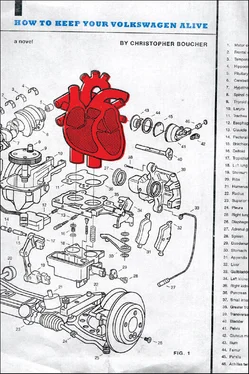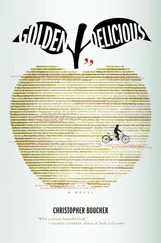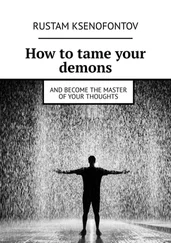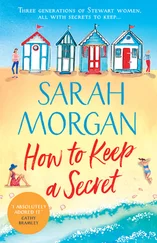But then the Lady from the Land of the Beans stopped us. “Wait a second,” she whispered, taking my face in her hands. “What’s happening here?”
I tried to kiss her and she pulled back. “_____,” she said. “I’m here to help with what’s going on inside you—”
“What do you mean?” I said.
“The ship that can’t find land,” she said. “But this isn’t right.”
“But, we’re telling stories. Making something.”
She forced a smile. “No we aren’t,” she said.
“Wait,” I said. I moved in close, whispered to her. “Just wait.”
“What,” she said.
Suddenly it was clear — I’d always known it, and just had to say it. “You have a Volkswagen Promise inside you,” I told her.
Her eyes were deaconesses. “You don’t know that,” she said.
I nodded. “Look and see.”
“No,” she said.
“Please,” I said.
She seemed to think about it for a second. Then she looked down to her stomach and lifted her vest. We both studied her belly. The skin had gone momentarily clear, like a film. There, inside her womb, was a tiny Volkswagen ticket for the taking.
“See?” I said. “Everything has a price.”
Her face uncoiled. “I don’t know if this is the right story,” she said.
“It just feels wrong,” I told her. “It will feel as good as a writing shirt before you know it.” And with that I leaned forward and kissed her, sending my ideas for the Volkswagen into her mouth, down her throat, into her lungs. She resisted at first, but I slipped my hand onto her belly and it grew warm.
I withdrew just enough to speak. “The Volkswagen Promise,” I said.
Her eyes were a vice. “The Volkswagen threat ,” she whispered into my mouth. Then she pressed against me, sending me all of her fear and questions.
And then, as if on cue, a Volkswagen Promise drove into the bedroom: a living, breathing oath to that new, unspeakable word, “home.”
• • •
We faithed, and as usual it took me a long time. At the end, though, something happened — it was easy, I was stealing from a bank and there were no alarms, no guns, no customers even.
When she lifted her body off of me I saw why.
“Shit,” I said. I sat up. “Look, look,” I said, checking for breath, for a pulse.
There was nothing. “I think it’s gone,” I said.
“What?” she said, and turned on the light.
“The condom. It’s dead. It’s not breathing.”
The Lady from the Land of the Beans saw. It had been a sheath but now it was just a ring.
I slipped it off. It was like a soldier that had been shot so many times that you couldn’t identify it. It didn’t look like any condom that I had ever seen.
We took a few minutes to collect ourselves. Then we put on our clothes and our coats and our boots and went out into the snow. It was amazingly, astoundingly cold.
I carried the condom in a little cardboard matchbox coffin and we walked through Smith College and up into the pasture behind the old closed-down mental hospital. I brought a shovel and dug a hole. The ground was cold so I could only get an inch or two down. I put the condom in and we bowed our heads and said a little prayer for god to take care of it. Then it was my job to push dirt over it.
But I couldn’t take it. I threw the first shovel of dirt and I just broke down. I sat down on the freezing earth and the Lady from the Land of the Beans sat next to me and leaned against me. When I could, I got up and finished the job. Then we walked home.
It was almost morning by that time, so we didn’t go to sleep. We just sat in my apartment, which was little and dirty and cold, and we got into this conversation about what happens when you die. I wanted to know: Why did it happen? What had the condom (or my father, for that matter) done wrong in its life? And where did it go? Was it somewhere on earth, or just sleeping forever?
The Lady from the Land of the Beans told me her theories.
I said, “So sadness can kill a thing?”
“Sure — there are stories like that all the time,” she said. “A spouse dies, the other follows right after. It’s like, the body responds to the mind or something.”
I looked up at her. “You think he’s looking down on us right now?”
“The condom?”
I nodded.
She took my hands in hers. “He’s free from pain now,” she said. “And he sees us and forgives us for what we’ve done.”
I was weeping. “I’m not sure. I don’t feel forgiven,” I said.
“You are. He won’t hold anything against you,” she said. In her eyes, a wave crashed against the shore and then rolled out, leaving something unidentifiable on the sand.
She wrapped her hands around her stomach. “Something’s happening,” she said.
I knew it was. “I know it is,” I said.
• • •
The next morning I went down to Starbucks for coffee and I got in a fight with the woman behind the counter over money. She wouldn’t give me my correct change.
“This isn’t right,” I told her.
“Oh, I’m sorry,” she said. “Did I mess up?”
I showed her how much change I had.
“No, I think it’s right,” she said.
“I should get four back,” I said.
“You gave me a five, right? The coffee’s a dollar fifty-eight, and I gave you back three forty-two.”
“That’s a one. The coffee’s one dollar. That means I should get four back.”
“It’s a dollar fifty-eight,” she said.
“You’re wrong, this isn’t right,” I said.
Her eyes were pounding, watery.
“I’m being cheated!” I said. I pitched my cup of coffee. It splashed all over the front window, and on other customers, sitting in chairs. I pointed at the woman. “You have no idea what it means to lose someone,” I said, “what that can do to you.”
A SCANNER DARKLY
And when did I get the writing removed from my blood? It was much later. I was, I don’t know, in my late thirties, early forties. I’d lost my job at the Wheel and the book of power had failed and started decomposing. My son was dead and his Memory wanted nothing to do with me. A symphony couldn’t save me.
Then I met a woman, an Emily. It was her suggestion to have the procedure, and it smelled to me like truth at the time. What I’m saying is, there were wires between us. Emily worked as a landscaper, drafting plans in the winter and planting in the summer. She was really good at it — she and her firm had single-handedly saved Forest Park, that old Springfield-ian sumner. When she took the account the bushes and trees were four months into a hunger strike. Through perseverance and kindness she made them understand the city’s point of view, though, and soon there was peace.
Emily had soft city skin and black, uncomplicated hair. She was energetic, upbeat, an optimist. Early on in our relationship she asked to see my words, my power, and she studied them carefully. When I asked her what she thought, I’d expected her to encourage me to restore the book. Instead, though, she asked if I’d ever considered going to a clinic and having the writing removed from my blood.
She wasn’t saying this to be selfish — even now I still believe that. Emily just thought that the writing, and all the power-maintenance, was more trouble than it was worth. “It’s affecting your health , for one thing,” she said. “Wouldn’t you like to be able to walk around without feeling dizzy all the time?”
It was true — so many years of carrying the magnetized, satellited book on my shoulder, near my brain, had left me constantly dizzy and nauseous. I’d been to a few doctors about it, and no one had been able to pinpoint it — the closest a doctor had come to doing so was to suggest that my blood vessels were constricted in some way. The only time I wasn’t dizzy in those days, ironically, was when my hands were in the power itself.
Читать дальше












